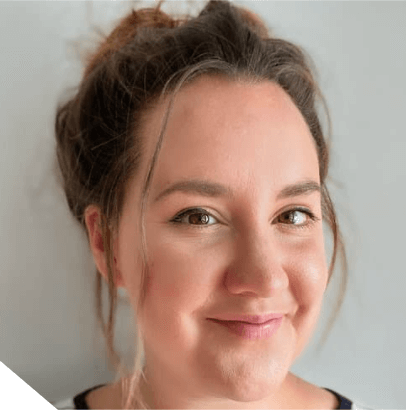
Alexis Stevens, Senior Strategic Partnerships Officer, Money and Mental Health
Introducing: Alexis Stevens
12 August 2021
How do we support customers with mental health problems while running a bank successfully? As someone who spent many years working in financial services this was a question that often cropped up in my mind. Hopefully now I have found an answer.
I recently joined the Money and Mental Health Policy Institute as their Senior Strategic Partnerships Officer, working directly with essential services companies, to make their products easier for people with mental health problems to access – all delivered through our Mental Health Accessible Programme. A programme I followed with admiration and curiosity prior to joining.
Background
I’ve spent a chunk of time delivering partnerships in the not-for-profit sector, supporting customer and employee mental health. My work has varied and had great impact; I’ve worked nationally with banks and their specialist customer care teams, to train them to better support vulnerable customers. I’ve created whole workplace support for companies facing large scale redundancies in the pandemic, and enacted bespoke urgent support when someone in an organisation has taken their own life. Prior to working in partnerships, I had a decade long career in banking, – some of which was spent managing and supporting customers through an acquisition and migration, many of whom were vulnerable in some way.
Failing customers with vulnerabilities
My banking career started in a sales environment, with high targets influencing decision making – then came the 2008 financial crisis. Following 2008 some positive changes in regulation were enacted, with more of a focus on service – but banks were still failing customers with vulnerabilities.
One customer who sticks in my memory is a person who had long term mental health problems – they were kind, gentle and much loved by my branch staff. They didn’t have the identification required to operate their account with us, and every other Thursday someone sat with them, supporting them as best they could. These problems meant fraud markers were automatically added to their account. There was no way of recording a chat history that could be easily seen by all, meaning they were back to square one when dealing with those that didn’t know them. The branch was formal, with little private space, and not necessarily comfortable for someone experiencing mental health difficulties.
The products, tools, processes, and training we had were designed to meet regulation and an archetypal customer – they were not designed for this customer, and I have no doubt we exacerbated their problems. I wonder how they are now. Encounters with this customer left me wondering, what does it mean for a bank and all its moving parts to truly acknowledge the effects that mental health difficulties can have on the way we think, feel and behave?
Meet your heroes
That is what’s so exciting to me about working for Money and Mental Health – they have some answers. They say you should never meet your heroes – but I am already glad I did. I am in a team with inherently kind, and incredibly talented people. People doing pioneering research and importantly, using it – by working with providers to form practical support and solutions that ensure accessibility for those with mental health is front and centre. It means that they aren’t addressed as a silo. These solutions cut across every bit of work an essential services provider does.
As well as working on the whole Mental Health Accessible Programme, I will also be providing specialist support to providers on their Debt Communications. With many people falling into arrears, it is more important now than ever for Money and Mental Health to work with the providers who play a crucial role in people’s lives.
